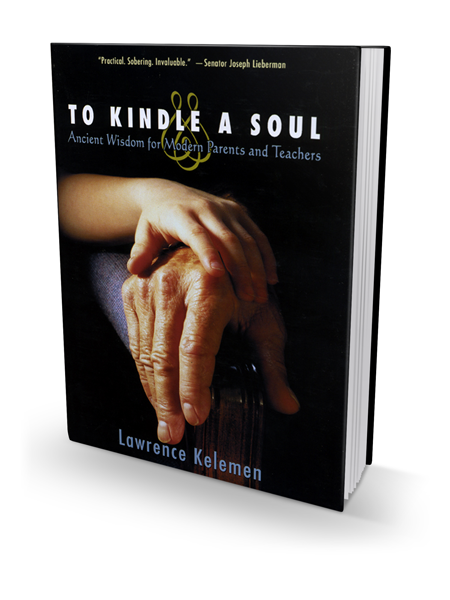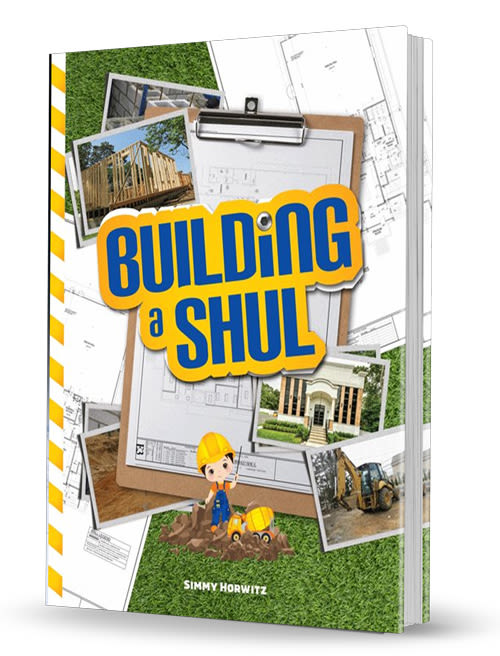
Who Says You Have to Succeed?
How do you define success? By having a doctorate? Studying in university? Maybe it's a Visa Platinum card? Or having traveled to Burma?

How do you define success? By having a doctorate? Studying in university? Maybe it’s a Visa Platinum card? Or having traveled to Burma? What, only Europe, like everyone else? Haven’t you seen the world?
Rebbe Nachman of Breslov told a story:
A man once hired workers to fill barrels, but the barrels were so full of holes that and whatever they poured into the barrels leaked out. The foolish workers said: “Since everything leaks out – what’s the point of working hard to fill them?” and they abandoned their post. But the wise worker said: “What do I care that everything leaks out? I get paid for my day’s work. My wages won’t be any less if the barrels remain empty.”
In our hurried world people prefer to work with a contract instead of being paid by the hour. “Let me finish the job and go home.” How many of us have worked for an hourly wage and found ourselves glancing every few minutes at the clock, waiting for the hour that we could punch our time card and head for home!
We love to be creative. We tend to judge the hourly workers who live with their eyes glued to the clock as petty, like moles who cannot see a beyond their rut.
What would you do if you were being offered a hundred dollars an hour to fill the barrels in Rebbe Nachman’s strange factory? Would you fill barrels all day for no reason whatsoever? Perhaps you’d report the malfunction and loss of valuable company assets to the manager? Would you mock those employees who don’t care about anything and go on with their futile efforts? Would you ridicule the poor management of this barrel factory?
With a few brief words, Rebbe Nachman turns our concepts around. The one we’d call petty and “small-minded” is the ‘wise man.’ The ones we’d call reasonable, who refuse to work without seeing results for their efforts, he calls ‘foolish.’
Success
On an intercity flight, I once sat next to two CEOs of major companies who had an obsessive need to impress the other about who had the biggest house, the biggest income, the largest credit options.
How do you define success? By having a doctorate? Studying in university? Maybe it’s a Visa Platinum card? Or having traveled to Burma? What, only Europe, like everyone else? Haven’t you seen the world?
To be considered a success, we have to know everything -communications, entertainment, law, security, economics. We have to prove how far we’ve climbed in the ladder of status and fame. In public, we’re so full of ourselves that we’re stuffed to the gills! But when we’re all alone – really alone – when there’s no one to impress, don’t we feel empty?
There’s an old story about a man who wanted to become wise. He spent years traveling to a famous wise man, known far and wide for his great wisdom. Before he told him his wish, his host poured him a cup of tea. He poured and poured. The tea overflowed the cup and spilled all over the table; a thin stream began to drip unto the floor.
“What are you doing?” the man cried, “can’t you see the cup is full and that you can’t fill it anymore?”
“Yes, my son,” whispered the wise man, “you’ve described your situation perfectly. You’re so full of yourself there’s no place for new wisdom or knowledge. If you wish to become wise, you must first empty the cup.”
Rebbe Nachman is telling us about a factory. But it is not a factory of barrels; it is a factory of people. Although the barrels remain empty, the workers are being filled! The production manager wouldn’t be impressed if they complained about poor management.
The barrels are designed to have holes! It’s not the situation that needs to change; it is us who needs to change.
We want to succeed in whatever we do – that’s natural. When we fail, we tend to give up – that’s also natural. But if we refuse to give up, we’ll change. We’ll develop strength character, self-sacrifice, and a great spirit.
“Learn to be empty,” advises Rebbe Nachman. “Don’t pretend to be full. When you’re truly empty, when everything in the barrels is poured out, you yourself will fill up.”
In the other world, in the innermost world that Rebbe Nachman describes, we receive our ‘wages’ for the struggle, for the good will, and not for results. Our inner world is not graded on the number of barrels we’ve filled, but on the self-sacrifice and faithfulness we demonstrate in trying to fill them.
Imagine if we educated our children in this way. We would praise them for the effort they invested to reach the goal, while we would show disinterest at the results. We wouldn’t demand that they be smarter, more successful, or more talented. We’d admire the only thing that has any real importance – their honest will to be good. They would be so happy! They would have self-confidence and believe in themselves. They would be creative and free to choose a path in life, at their rate, according to their own abilities.
Imagine if we educated ourselves this way. We wouldn’t bash ourselves day after day for not being as intelligent as X, as handsome as Y, or as rich as Z. So what if we never saw the world, if we never achieved the rank of captain, never attained a title. Although our bank credit is low, we can still be happy, because we’re doing our best. We’re not competing against anyone else. We’re happy with what we have, and that brings us joy.
“When you’ll be truly empty, when everything in the barrels is poured out, then you yourself will fill up.”
(From “The Day Laughs from the Night” by Rav Erez Moshe Doron, and the website: http://www.levhadvarim.com).










Tell us what you think!
Thank you for your comment!
It will be published after approval by the Editor.